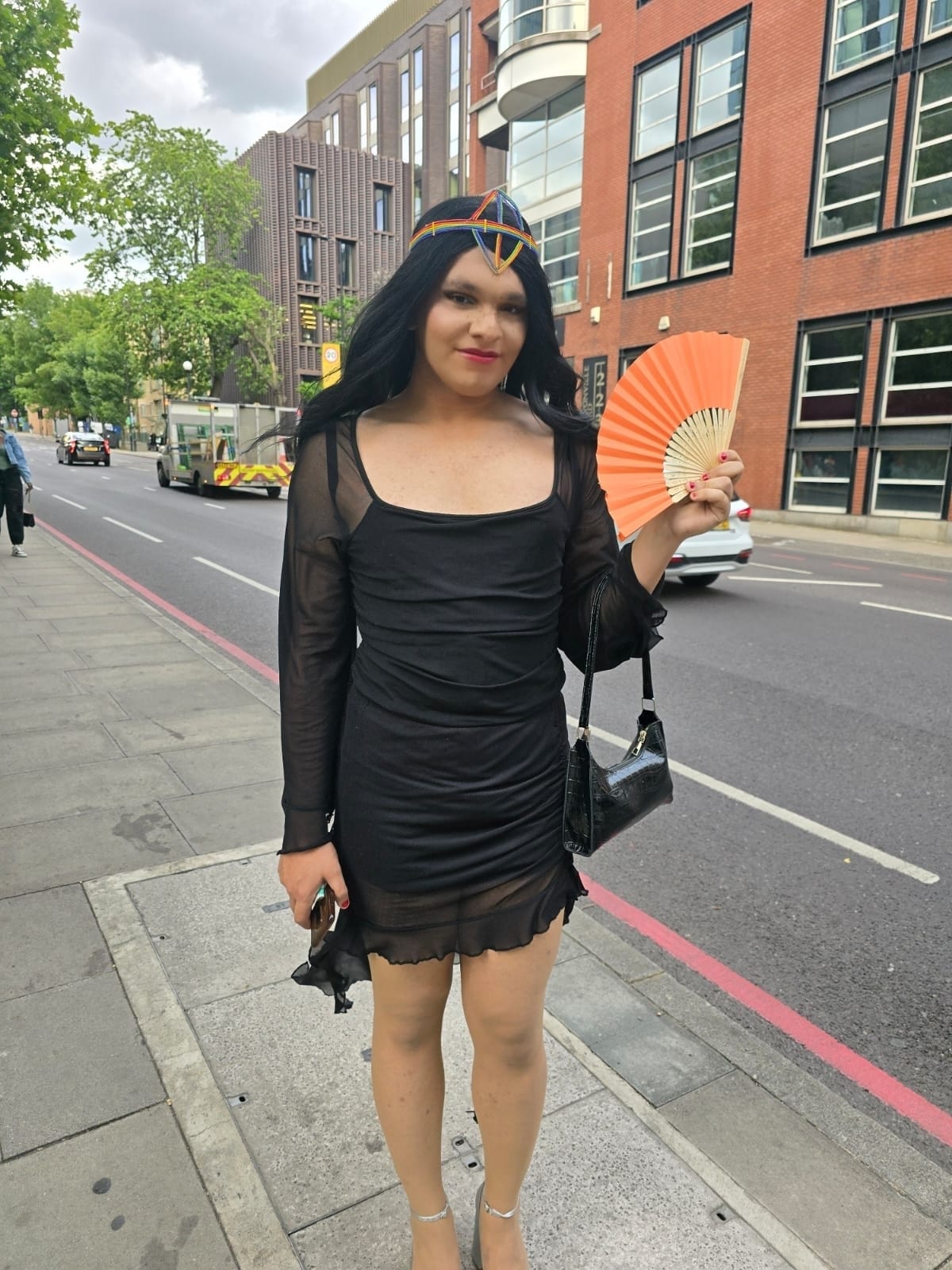Ahed grew up between Morocco, Jordan and Syria; but it’s Morocco “that will always be special in [their] heart, and that’s where [they] feel homesick for”.
Speaking about their childhood bedroom, they tell me how it was “full of teddies, with Disney bedsheets and curtains” – even though it was “too much stuff – I ended up sleeping in the living room!”
Family is important in the stories Ahed shares – they tell me how every week they’d go to the ocean with their grandfather, cook for their mother, and how their favourite auntie would take them thrifting – she was a tailor who loved clothes and had great fashion sense: “she didn’t have a problem with a boy loving fashion!”.
The family moved around a lot for their mum’s work, living in “Syria, Amman, Aqaba – back and forth”. Syria and Aqaba “felt like home”, and it was in Aqaba, that they “made my first LGBTQ+ friends”, trying on wigs and dresses and beginning to discover their gender identity.
After their dad and eldest brother found out about their sexuality and gender identity, Ahed was kidnapped and experienced violence. Despite doing “everything to stay… [speaking] to the police to ask for protection, they told me it was a family matter and they wouldn’t get involved”, Ahed ultimately had to leave, writing a note for his mum before getting on a plane. They told us, “I miss my mum, I miss my brothers and sisters… I want to hug my grandmother again”.
Within days, Ahed arrived in London, with only some clothes that their grandmother made with them. Despite speaking excellent English, “I was scared to ask for asylum in the airport, in the end I went to the Home Office”. There wasn’t the correct option for their gender identity on the UK paperwork, which meant initially sharing a room with a stranger in a hotel.
“This is not an easy journey – especially if you don’t speak English,” they told us. “Sometimes you’ll have a nightmare about being sent home, or about your past traumas. Sometimes your roommate won’t understand your situation, your gender identity or your sexual identity.”
Food means everything to a home, they tell us – “For me, home cooked food is home… There is nothing better than cooking your own food – you can live in a bad place and cook your own food and you’ll feel good”. Now living in home office accommodation, they have limited access to a kitchen.
While registering for medical services in the UK, Ahed came across Say It Loud Club via the Outside Project. Remembering, they tell me how “scared I was to go to the first meeting – I had no wig, no makeup, nothing”; but it “really felt like a community”. “I’ve made a lot of friends there, and I’ve taken friends there – we all connect as we all have the same goal to live freely. We’re a super diverse group of people”.
“LGBTQ centres like Say It Loud Club are a big help for me – every time an anxiety attack hits, I can go and share my problems and they’ll be able to relate. You know you’re getting the right legal help and housing advice.
Please – if you are an LGBTQ+ person seeking asylum, don’t just stay in your accommodation. Go and meet people, find your community and understand your next steps. Go and meet the people who will make the journey less hard, and always trust your gut.”
This pride month, help us continue our vital work by donating to Say It Loud Club, and make a positive impact in the lives of the UK’s LGBTQ+ refugees.
Just £10 can help us to refer a LGBTQ+ refugee to a solicitor with experience in asylum claims on the ground of sexuality. Donate here.

